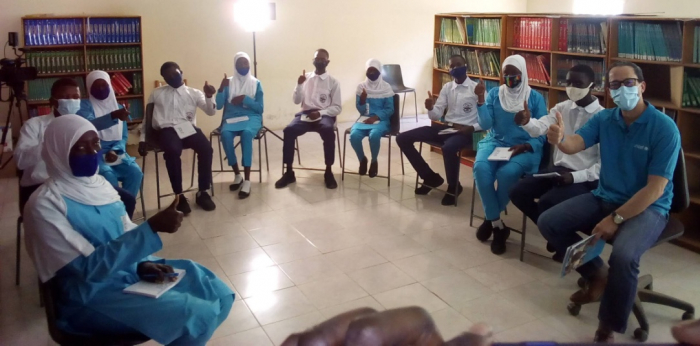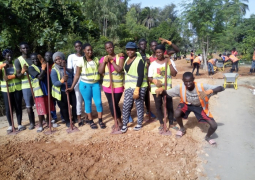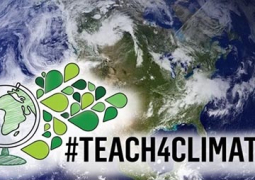
They said this is because it interrupted their learning process for seven months.
Students made these remarks during a dialogue with United Nations Children’s Fund (UNICEF) Country representative in The Gambia Gordon Jonathan Lewis last Friday at the school’s library.
The dialogue provided UNICEF the opportunity to discuss with students how covid-19 has impacted their lives and how they think we can build back better.
The dialogue was part of activities marking World Children’s Day, celebrated annually on 20 November, by putting children at the centre to mark the adoption of the Convention on the Rights of the Child.
This year, World Children’s Day is celebrated at a time when the world is grappling with a global pandemic that has deeply affected children and their families.
It is estimated that 700,000 children in The Gambia were temporarily out of school for up to six months; families have lost their livelihoods; and the pandemic has driven many into poverty.
Children shared their experiences during the pandemic; that of their families and communities as well as came up with suggestions for the ministry of education and government to adopt in rebuilding back after covid-19.
During the discussions children said covid-19 have negative impact on their livelihoods and economic well-being of families capabilities to put food on the table for their children; the prolong shot down of schools had had a negative impact on children capabilities to continue their learning as well as negatively impacted their results from recent examinations; the lockdown also constrained their movement, some of them lacking the financial means to engage private tutors to help them keep up; some of them could not fully concentrate during the distance learning due to household chaos; deprived graduates employment and caused unemployment with the scaling down of employees; could not complete their syllables resulting to poor results during recent examination; and resulted to closure of businesses.
Students therefore appealed to government to organise remedial classes for schools to cover lose hours as well as introduce compulsory Saturday classes and pay teachers to conduct the classes.
UNICEF Country representative, Gordon Jonathan Lewis said the dialogue with students was interactive, open, honest and dynamic regarding the impact of covid-19 on their lives as students, children and adolescents, their parents, families and community.
He pointed out the reason for visiting the school was to listen first hand to their ideas, suggestions and perspectives regarding the impact of covid-19 and how to build back.
Country representative Lewis observed that children are ready to contribute to the process of The Gambia building back.
He also observed that the ministry of education made efforts to ensure learning continues during the pandemic but added that we have to be realistic that not every child lived in a family that is connected to the internet or has the means to continue the distance learning.
He noted that now is the moment to ensure children affected by the pandemic to learn catch up with their educational learning process.
He stated that UNICEF’s priority when the pandemic started was to reprogram available resources to prioritize national response in the procurement of face masks, thermometers for school to measure temperatures of those coming in, improve hand washing stations in schools and other places, procurement of equipment to support child health maternity, among others.
Mr Lewis remarked that children have opinions, voices and suggestions on how their families, homes, communities and country can be a better place for them, and urged elders to listen to their ideas, engage them in decision making, solicit their perspective on different issues that might affect them.
“Always put the best interest of the child in anything that have to do with their decision, policy first”, he urged government, saying if they do so he guarantee our economy will be strengthen and the country become a better place for children.
The Gambia is already doing tremendous things but more can be done by listening to children, he further said.
The best place for children during the pandemic is at school because as a group children are less prone to be infected with covid-19 as well as be happier and their emotional well-being much stronger, he also said.
He encouraged children not to feel discourage, de-motivated or think it is the end because in life you experience obstacles and huddles and in order to overcome them you need friends, companions and families to support you overcome them.
“You might be the generation of covid-19 but covid-19 will not define who you are”, he also told children.
He also urged people to wear face masks, regularly wash their hands and observe social distancing because the country registering fewer cases does not mean covid-19 is over in the country.
He concluded by saying that it is very encouraging to see that government has taken covid-19 measures seriously with students wearing face masks, observing social distancing, and regularly washing their hands.
Read Other Articles In Youth Forum

MoYS plays crucial role in shaping youth, sports development in Gambia
Apr 8, 2025, 11:00 AM




